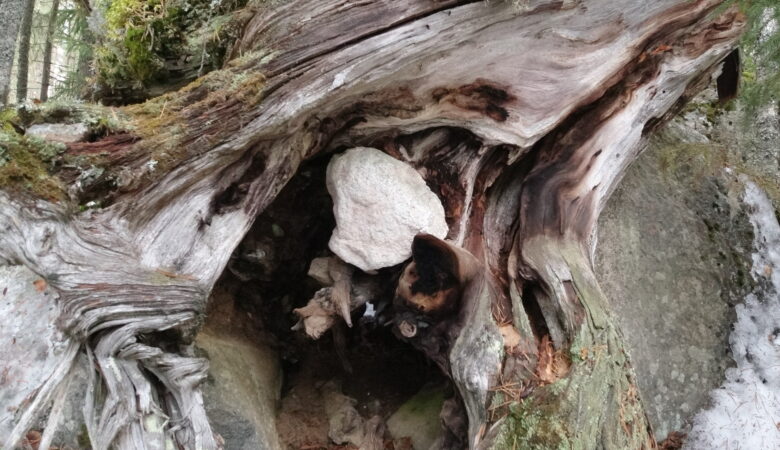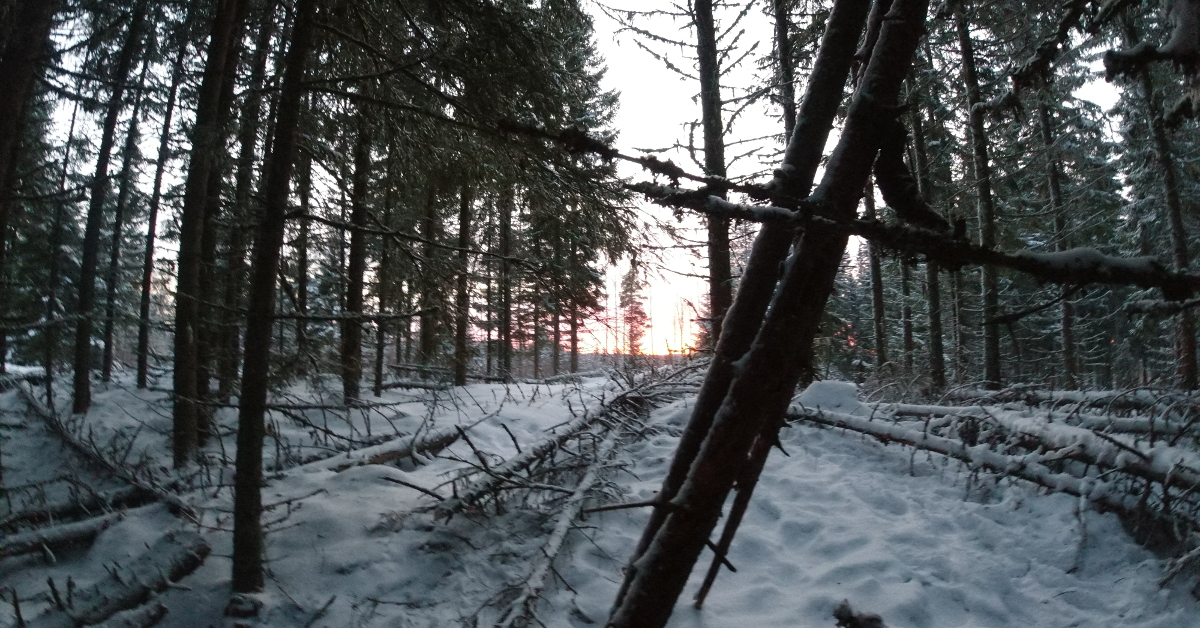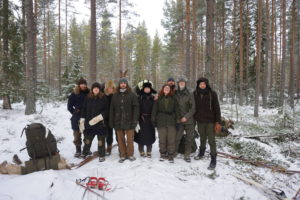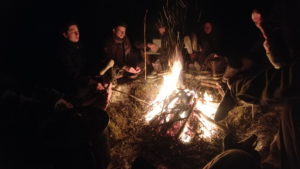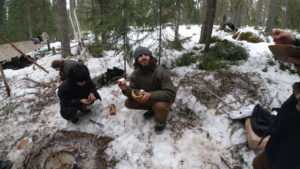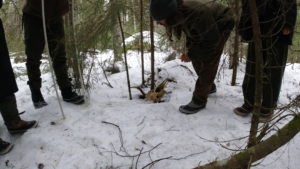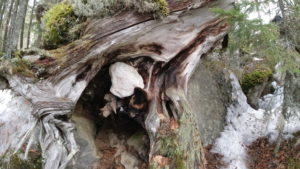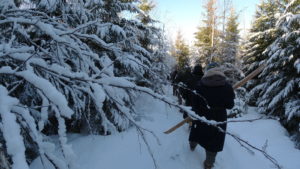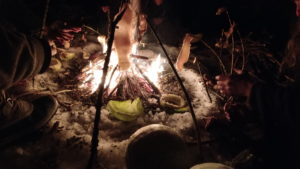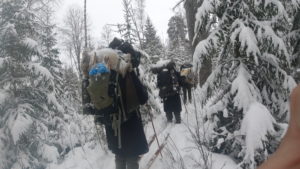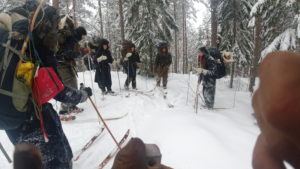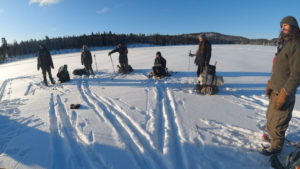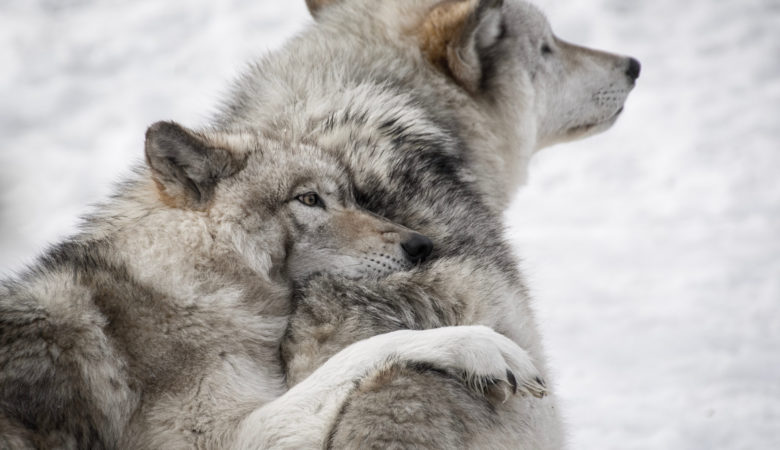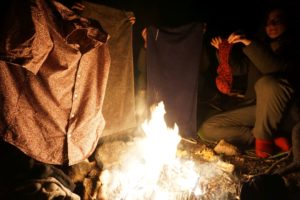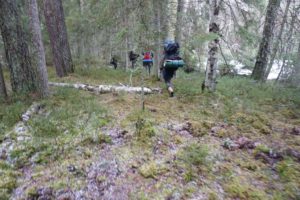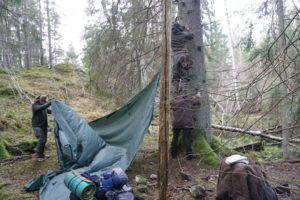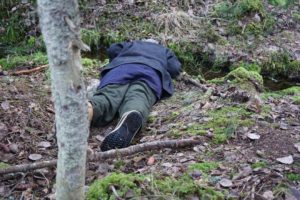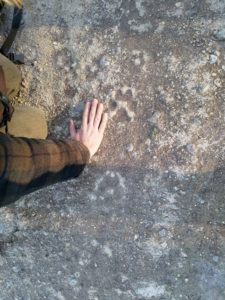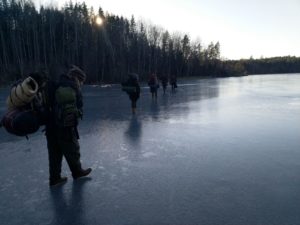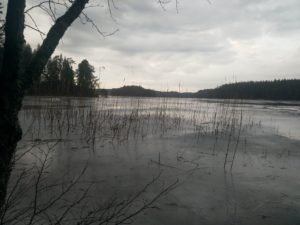German version of this blogpost to be found on wildewurzeln.at
The topic of the wolves slowly coming back to certain areas of Europe seems to create more and more of a rift between people. There are those who are afraid. Afraid for themselves, their children, or their pets. Afraid for their livestock or livelihood as hunters. And then there are those who see this majestic animal that has been so connected with our development as a species. Or those that are simply longing for more balance and more rewilding in our ecosystems. Those, who want to conserve or rebuild areas of nature left alone by humans, given back to all the other beings also living on our shared planet.
And it seems that this is a divide that cannot be overcome. One side doesn’t seem to understand (or want to understand) the other. But it won’t keep me (and hopefully others) from going for it anyway. And this article should serve as a step towards both understanding the real issue, and finding ways to come together.
So what is the problem really about?
And can it even be traced to only one reason?
Indoctrination from a young age
In so many cultures there are stories and fairy tales of the big bad wolf: Little red riding hood, The wolf and the seven young goats, and who knows how many more. They send a message, that wolves are dangerous and that humans should fear them. And who would question that subconscious message? – We learned it so early, so it must be true…
Just the idea of reading stories like those to little children sends shivers down my spine, how this negative narrative towards those animals is so deeply engrained in our culture. And when talking to people about being out in the wild, a lot of them ask “Aren’t you afraid of the wolves?”, showing the unquestioned fear that can still be found in a lot of people, even those that are not particularly against the wolves coming back.
But there is of course a lot more to the fear or aversion of wolves. And it goes deep into all kinds of aspects of our culture and civilized lifestyle.
Wolves kill
The main reasoning that is used to justify official and sanctioned killings of wolves is, that they are killing the sheep or other livestock of farmers. Also pet owners living close to forest areas are getting scared for their beloved dogs and cats. And those fears are not unjustified, as a specific case only recently in the area around Järna (Sweden) showed, where a wolf was killing house cats, as well as being seen around the village a lot.
And I get it. If someone killed my favourite pet, I would be sad and probably angry, too. But is the wolf really the only one to “blame” for that problem? Isn’t it similar to beggars stealing a loaf of bread, after being driven out of a job by a company just wanting to make more profit?
The unnatural ways of our civilized lives
This topic of the unnatural ways of our civilized lives is a Pandora’s box, big enough to fill at least one if not many books. So I won’t cover all of it here. However, I will share some observations.
In Sweden, as well as Germany and a lot of other countries, sheep – domesticated, docile, defenseless sheep that is – are kept in fenced in areas. They are a small shadow of their wild moufflon counterparts, that have horns to defend themselves, as well as the memory and knowledge that comes with living and surviving in the wild.
Those fences keep them from running away from the farmers. They also keep them from running away from the wolves, and hiding somewhere safe. We humans have created an environment that makes it easy for us to kill and eat them. And wolves are simply seeing and seizing that same opportunity. Why would they choose the alternative of chasing a deer or moose for kilometers with no guarantee for success?
The Industry
As with so many things in civilized life, there is a whole industry involved, which means, that there is a lot of money at stake. Every animal that is killed by a wolf, cannot be utilized by humans. No matter if it’s livestock or game. Sometimes it’s not even about big money, but about livelihoods. And it’s very understandable, that people see the wolf as a threat because of that.
The current situation in Scandinavia vs. central Europe
When living in central Europe, a lot of people have a very romanticized view not only of Canada and North America, but also of Scandinavia. It’s the land where big predators – or any wild animals for that matter – have the space to roam free for kilometers, without really coming into contact with humans much. Where they can live undisturbed and don’t threaten us.
But the reality looks very different. In Scandinavia, there are around 55 packs/families and 28 couples of wolves living in the wild, most of them located in Sweden. This is about a third of the numbers found in Germany, which counted 157 packs/families and 27 couples, as well as 19 lone individuals.
Additionally, the Scandinavian wolves are challenged for another reason: They are all descendants of only about 5 animals, which also weakens their genetic stance. This is mostly due to the north being reindeer country, and any wolves being shot on site. So no animals from Finland or Russia can reach the southern packs to strengthen the gene pool.
Why is the wolf important for us?
Why is it so important to allow the wolf to come back? What was their place and role in the ecosystem, and is it still valid today?
Naturally balanced ecosystem
In their natural, wild environment, they hunt mostly deer, moose and elk. All those animals, if not kept in check, would eat the small buds of young trees, leading to the forest slowly giving way to open bush or grass land. As the results from the reintroduction of wolves in Yellowstone National Park shows, they do play a very important role in the natural balance of an ecosystem.
But you might ask: “Aren’t hunters taking care of this task in a lot of countries?” Well, yes, to some degree. But simply reducing their number isn’t all that wolves do in a healthy ecosystem.
It’s not like they are just killing all the animals, and also not all of them at once. They pick the weak, the old or the wounded. They only kill when they need food. And they have to constantly come up with new and improved ways of hunting, since the surviving deer learn from the “mistakes” of their fellow mates. They are chased and tested by the wolves. That way, both the deer and wolf are kept on their toes. Kept healthy, fit and strong.
So when humans hunt the deer nowadays, instead of the wolves, this healthy back and forth, this growth on all those levels is not happening. We simply use sophisticated technology, sit somewhere, and shoot. Of course, this is a very simplistic view of hunting, and there is a lot more to it, but how much are we human hunters allowing ourselves to learn from deer? And how much could we learn about balanced, healthy hunting from observing the wolves? – Not just mentally, but physically and in a lot of other ways? And how much are deer learning and growing when hunted by humans? How are they kept fit and healthy?
Our longstanding relationship with wolves
There are a lot of people very fond of those fascinating animals. They have so much in common with us, especially when it comes to social behaviour in small bands. And we as humans have a long history of being in relationship, first with wolves, and then more and more with their domesticated brother, the dog. It seems to be deeply embedded in our epigenetic memory.
Possible solutions?
So how can we create an environment, that isn’t such a juicy invitation for wolves? How can we make it so that instead of dangling a carrot in front of them and then blaming them for eating it, we can find a good balance?
Learning from others
This year I went to Romania to visit a friend, and check out an area for a wilderness immersion. A region with bears, wolves, wild dogs… and also a lot of sheep farmers!
Those sheep in Romania however, are not fenced in. So how are they protected from the wolves? – Well, they have specifically trained shepherd dogs, that are not only taking care that the sheep are kept together, but also protect them from wolf attacks!
Remove the temptation
Another way would be to put up specific fences that are designed to keep out wolves. If they can’t get in to kill the sheep, we don’t have to blame them for it. They will simply go back to their original prey of roe deer, deer and moose. This doesn’t mean that there would never be another encounter, but the boundaries would be a lot clearer, and there wouldn’t need to be so much killing.
Embrace a give and take
In combination with the above mentioned ways to keep the killings in check, we might also want to adapt our mindset about the whole situation. There are ways to live more in balance with all living beings. Natural balance is about giving and receiving. So maybe we can accept some animals to be taken by the wolf as a form of giving back to nature. As a thank you for being allowed to be here and be nourished by the land. And that way we can learn to also make peace with the situation, and find a way to live in a balanced relationship with these important animals.
And one way to do this is during our Guardian Trainings “Becoming Wolf“.
Current Events



